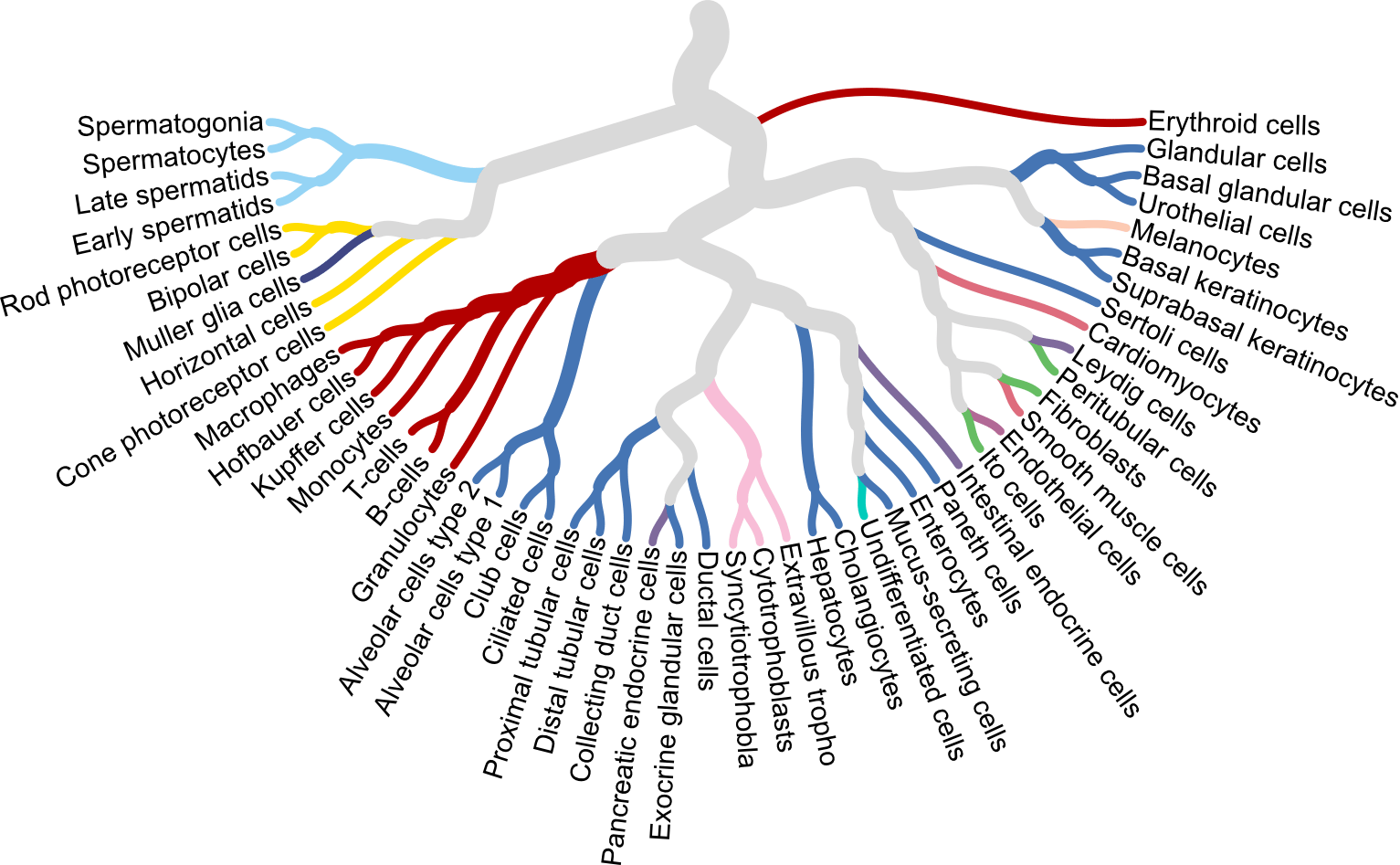Single cell map released – unique resource for studying cell type specificity
A single cell type map of human tissues is presented in a recent study co-led by SciLifeLab researcher Mathias Uhlén. In addition, an open access atlas has also been launched, with more than 250,000 interactive plots, to allow researchers to explore the expression in individual single cell types for all protein-coding genes in these tissues.
“The paper describes an important addition to the Human Protein Atlas, which has become one of the world’s most visited biological databases, harboring millions of web pages with information about all the human protein-coding genes” says Professor Mathias Uhlén, SciLifeLab researcher and director of the Human Protein Atlas consortium, in a press release from Uppsala University.
In the study, single cell analysis using both RNA sequencing and antibody-based profiling have been combined to create a publicly available map of 192 human cell types.
“We are excited that the new open access Single Cell Type section constitutes a unique resource for studying the cell type specificity and exact spatial localization of all our proteins”, says Dr Cecilia Lindskog, Head of the HPA Tissue Profiling group.
The study involved SciLifeLab researchers, such as first author and SciLifeLab PhD student Max Karlsson, and researchers from the Human Protein Atlas, Uppsala University, Karolinska institutet, KTH and more. Distinct expression clusters corresponding to cell types sharing similar functions, both within the same organs and between organs were highlighted. A classification to map the gene expression profile of all protein-coding genes across the different cell types was performed to determine the number of genes elevated in particular single cell types and thus showing high or low cell type specificity.
Across all analyzed cell types, almost 14,000 genes showed an elevated expression in particular cell types, out of which approximately 2,000 genes were found to be specific for only one of the cell types.
This article is based on a press release from Uppsala University. Read the study in its entirety to learn more.





